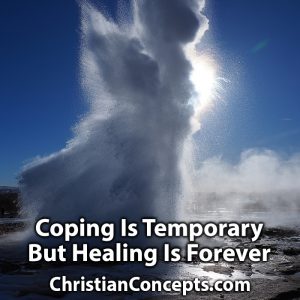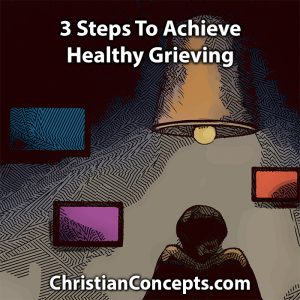In a world filled with uncertainty, discouragement can feel overwhelming. But Christian hope isn’t wishful thinking—it’s a confident trust in God’s eternal promises. Here’s how to shift your focus from temporary pain to lasting purpose.
When you feel discouraged, where do you turn? Hoping in worldly riches is empty. Positive thinking won’t last long unless it’s rooted in the reality that comes from God. I want to hope in something real. That’s what truly inspired me when I first became a Christian.
Hope That Transforms Meaninglessness Into Purpose
Before I knew Christ, life felt like a chaotic stream of disconnected events. I couldn’t see any overarching meaning. But when I became a Christian, my whole understanding of life crossed over from emptiness to a meaningful, ordered plan. I realized that God was not only real—He was intentional. He had a purpose for me, and for every moment I live.
Even now, I sometimes lose sight of that order. When bad things happen, life doesn’t make much sense. But this doesn’t change the ultimate truth: God is real, and His eternal plan is still unfolding. Our circumstances may feel random, but God is never random. He is always working, even when we can’t see it.
Hope That Endures When Everything Else Fails
When all seems hopeless, there is still hope for a believer in Jesus Christ. You might have had the worst “luck” or just received devastating news. You might feel like you’ve lost everything. But if you’re breathing—if you’re alive—then God still has a purpose for you being here.
You may be walking through a season where nothing feels meaningful. You may be surrounded by silence, pain, or confusion. But even in that silence, God is speaking. Even in that pain, God is present. Even in that confusion, God is guiding.
Hope doesn’t mean pretending everything is fine. It means trusting that God is still writing your story.
Hope That Shifts Our Eyes to Eternity
The Apostle Paul reminds us:
Therefore we do not lose heart. Though outwardly we are wasting away, yet inwardly we are being renewed day by day. For our light and momentary troubles are achieving for us an eternal glory that far outweighs them all. So we fix our eyes not on what is seen, but on what is unseen, since what is seen is temporary, but what is unseen is eternal.
2 Corinthians 4:16-18 NIV
This passage invites us to shift our gaze. Earthly troubles are real, but they are not ultimate. The pain we feel now is temporary. The glory God is preparing for us is eternal. When we fix our eyes on what is unseen—on Christ, on heaven, on the promises of God—we begin to live with a hope that cannot be shaken.
Therefore let us be grateful for receiving a kingdom that cannot be shaken, and thus let us offer to God acceptable worship, with reverence and awe.
Hebrews 12:28 ESV
Hope That Grows Through Pruning
I encourage you to ponder what your life might look like if you hold onto God and move in the direction He is leaving open to you. Are doors closing? That may be God pruning you—not to punish, but to redirect. Pruning is painful, but it’s also purposeful. It clears space for new growth.
God doesn’t want you to give up. He wants you to try something new—something you haven’t tried yet. With God, there are infinite possibilities. Closed doors are not the end; they are invitations to explore new paths.
Hope That Pursues the Dream God Planted in You
What dream is in your heart? What desire has God placed within you that still burns, even when everything else feels cold?
Don’t let discouragement extinguish that flame. Instead, ask God to breathe on it. Ask Him to show you new ways to pursue your calling. Maybe the path you imagined is blocked—but the destination is still possible. God may be leading you through a different route, one that requires deeper trust and greater surrender.
I’d love to hear how God is stirring hope in your heart. Leave a comment or contact me here so I can pray with you and encourage your journey toward eternal purpose.
Learn more about hopeful pruning.
Image by Free-Photos from Pixabay
Last updated 20251026























